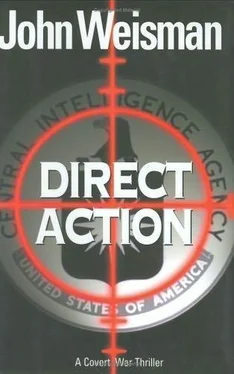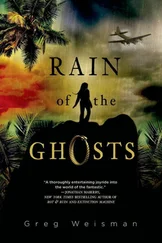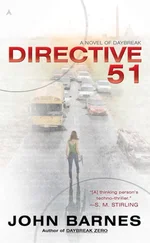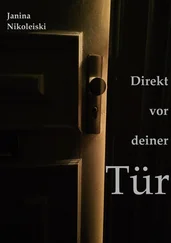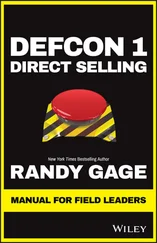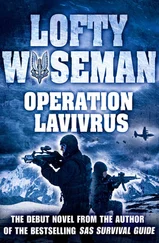Indeed, limits, constrictions, and lack of competent personnel were three of the reasons Langley was forced to subcontract such a sizable chunk of CIA’s historic responsibilities to outside firms these days. Some independent contractors, or ICs, provided security for CIA case officers in Iraq and Afghanistan. Others provided CIA with language-capable interrogators and translators to accompany the junior case officers who’d been pushed through training without the ability to speak anything except Gringo.
And then there were the black-ops ICs. International Alternatives, one of 4627’s main K Street competitors, for example, was currently running a covert program for Langley and DOD, sending sheep-dipped Delta operators into Iran with teams from the Mujahedin-e Khalq (the People’s Mujahedin of Iran, or MEK), a group listed by the State Department as a terrorist organization, in the hope of providing eyes-on information about Iran’s nuclear weapons development program. And a precious few ICs, firms like 4627, were paid extravagantly to covertly collect, interpret, analyze, and then disseminate the holy of holies, intelligence product itself, to Langley.
Intelligence product because CIA lacked the capabilities to fulfill many of its obligations these days. CIA was peopled with so many layers of managerial deadwood it simply did not have enough qualified personnel to get the job done. And then there was the deniability angle. In the politically correct world of the twenty-four-hour news cycle, outsourcing gave CIA deniability. That was because the Agency’s major ICs, firms like 4627, were, in point of fact, cutouts.
ICs operated in the black. More to the point, private contractors were under no obligation to inform the House and Senate intelligence committees about what they did-and to whom. There was huge potential for abuse, of course. Not at 4627, where Tony Wyman, Charlie Hoskinson, and Bronco Panitz maintained a strong chain of command. But other ICs weren’t so well run. Tom had already heard gossip about abuses in Iraq and Afghanistan.
And what if something did go wrong-what if Tom mucked up? Well, as Tony had said more than once, the bottom line is that 4627 and all its people were disposables. He had said as much to Tom the day he’d recruited him. “We can’t afford to screw up,” is what Tony said. “Because unlike your time at Langley, we work out here without a net. Just like the guys in Mission: Impossible, ‘The secretary will deny any knowledge…’ You know how the mantra goes.”
Which was one reason the thought of hunting and killing made Tom Stafford just a little uncomfortable. Well, he didn’t have to like it.
Besides, they weren’t anywhere near the direct-action stage yet. “There’s a lot to nail down before the hunting season opens, Reuven.” Tom took a long pull on the cigar. “First things first. Check with Shin Bet on the explosives-see if they’ll run supplemental tests for you. And Shin Bet is holding two prisoners I want to interrogate. The ones Shahram told me about. The guy from Jerusalem-the one with no hands. Then the bomber from Tel Aviv. Set it up for me first thing in the morning.”
“First thing in the morning?” Reuven drained the cognac and poured himself another. “First thing in the morning, my friend, I am going to drive you and your lady friend to Jerusalem so she can walk through the Old City and feel some of the magic of this country-and tell her not to worry about the Intifada because she’ll be a lot safer in Jerusalem than she would be in much of Washington, D.C. Then we’ll drive back to Tel Aviv so I can take the two of you to a great fish restaurant in Jaffa for lunch. After lunch, we go up the coast to the Roman ruins in Caesarea. And for dinner, I have a friend from Shayetet 13-the Israeli SEALs-who opened the best restaurant in Herzlyia.”
“Reuven-”
The Israeli’s hand went up like a traffic cop’s. He cocked his head toward the second floor of the house. “Look,” he said in Arabic, “Imad Mugniyah is long gone. Zip-zip through the Rafah tunnels to Egypt, and from there, who knows where-maybe Tehran, maybe back to Beirut. Ben Said no doubt used the same route, although now that I have a name and a picture, maybe I can pick up a scent.” He shot the American a look that preempted any objections “That’s that, Tom. So, tomorrow we go sightseeing. The whole day. Tuesday afternoon, your friend, she goes on a plane back to Washington, full of stories about her wonderful surprise trip to the Holy Land.”
The Israeli knocked an inch and a half of ash off his cigar. “Frankly, I think you should propose.”
Reuven saw the shocked expression on Tom’s face and cocked his head in the American’s direction. “What’s the problem? You love this woman, right?”
“For sure, Reuven.”
“So in Tel Aviv I know a place you can find an engagement ring for her. He’s a diamond merchant. I served with him overseas. He has only the best. And I can get you a great price.”
“Reuven-”
“Look, I’m thinking only professionally. Engaged. That would give her real-how do you Americans say it-cover for status for being here.” He laughed. “Cover for status. Perfect.”
“Marriage isn’t a game, Reuven.”
“I’m not playing games. You love this woman, right?”
“Yes, I do.”
“So do the right thing. Don’t make trouble for her-marry her, Tom.” The Israeli’s face clouded over. “If I had it to do all over again, I’d marry Leah five years earlier than I did. That would have given us five more years, Tom. We had thirty-six years together. I can tell you now it wasn’t enough.”
“I’m sorry, Reuven.”
“Believe me, Tom, I am sorrier than you. So give your MJ a good time, buy her a ring, then put her on the plane home. No business, Tom. Not a hint of it. After she’s safely away, ecstatic with a diamond she can show all her colleagues-that’s when we do business. Then-I’ll arrange for you to debrief the scum who came here so they could kill women and children. Then we can start the hunt.”
26 OCTOBER 2003
10:02 A . M .
SEVEN KILOMETERS NORTHWEST OF QADIMA
IT WAS THE SMELL,more than anything, that had made Tom uneasy; an ineffable but palpable mélange of disinfectant, urine, sweat, must, and fear. The result of this assault on his senses-and this took place even though Tom knew intellectually he was just a visitor here-was a huge and totally unexpected psychological tsunami. It sucked Tom into an emotional undertow that combined apprehension, anxiety, and, as much as he tried to fight against it, complete and utter heart-palpitating dread. He couldn’t help himself. Dread was…just in the air.
They’d left at nine. Reuven had taken the coast road. Just north of Udim, opposite a Toys “R” Us superstore that would have done justice to the Paramus Mall, he’d swerved off the highway, drove down the exit ramp, and continued north on a dusty track that ran parallel to the highway. Two kilometers on, he’d made a sharp turn onto a potholed, single-lane road bordered on both sides by denuded cotton fields. There would be only one interview today. Reuven told Tom that Heinrich Azouz, the Jerusalem bomber, had died of his wounds. But he’d pulled enough strings to get Tom granted permission to interrogate Dianne Lamb. It was a one-shot deal.
They’d driven due east, followed the browntop as it turned north then east again, crossed the tracks of the main Tel Aviv-Haifa rail line, and continued another three kilometers past brick factories, concrete plants, and quarries until they intersected a four-lane blacktop road so new that the center line hadn’t been painted yet. Tom caught glimpses, but he was focused on the work at hand.
Читать дальше
